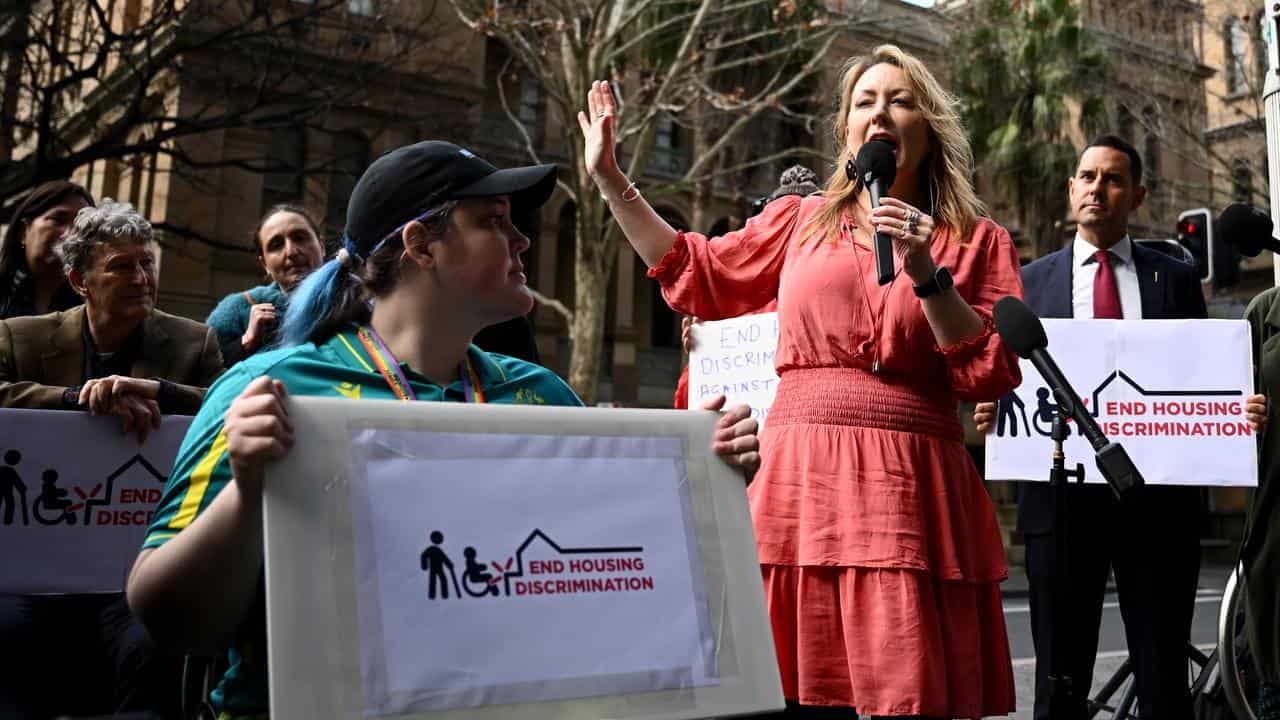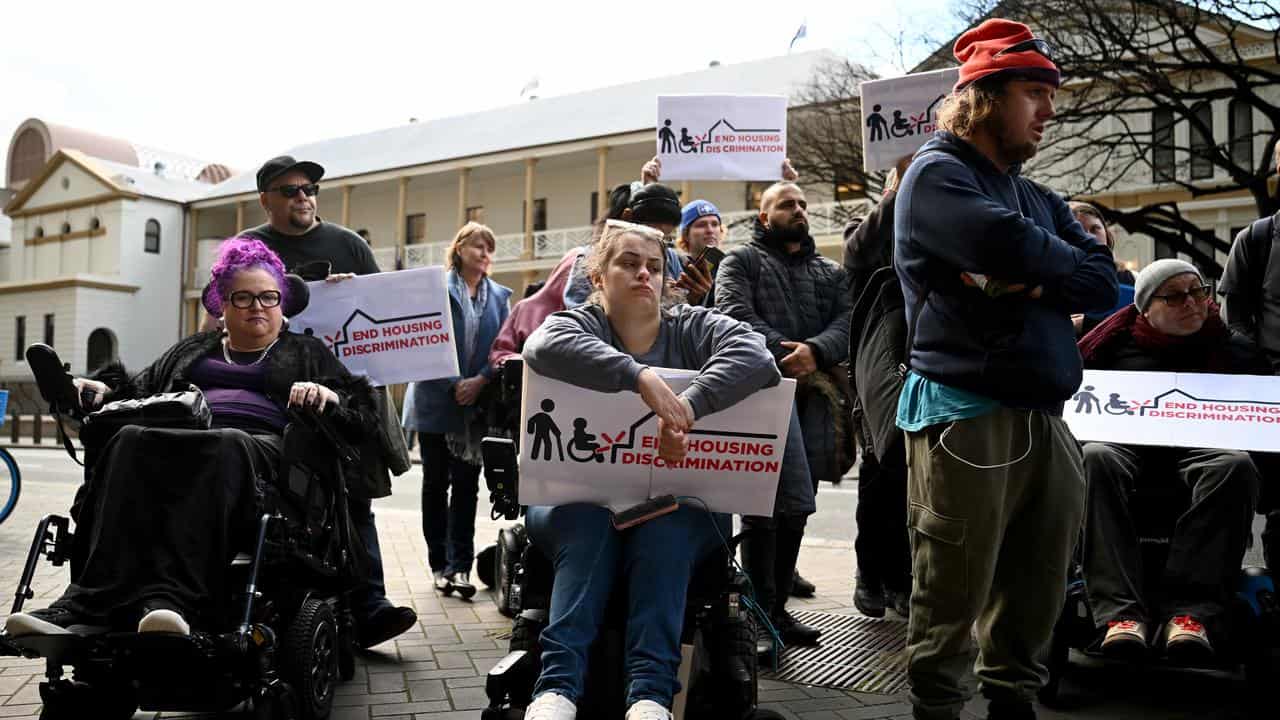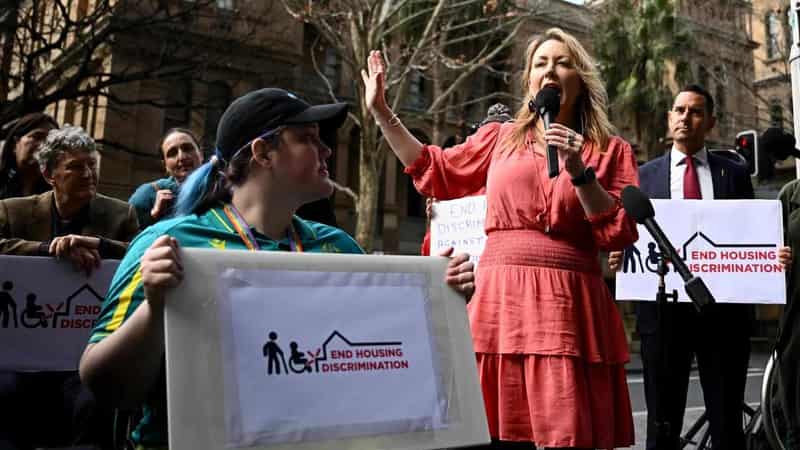
A fully wheelchair-accessible home would change para-athlete Julie Charlton's life, but she says the lack of up-to-date housing standards in her home state is letting her and others down.
A step-free shower and level entry to a home are some of the basic accessibility essentials the National Construction Code requires developers to include when building new homes.
But Western Australia and NSW are yet to adopt the design standards, despite other states and territories pushing ahead with the changes.
"I've always wanted to live my own independent life and be my own person," Charlton said during a rally of disability advocates outside the NSW parliament on Tuesday.
"The fact that we, as disabled people, don't have the opportunity to freely access any home - whether it's a friend's, a relative's, or whether we want to rent or buy our own home - is disgraceful."
Organised by Building Better Homes, a coalition of peak bodies and agencies campaigning to have the accessibility standards rolled out, the rally was marked by an open letter to NSW leaders, including Premier Chris Minns.
Charlton said people with disabilities, older Australians and others needing additional support were often forced into specialist housing and aged care unnecessarily because of unsuitable properties.
"People living their true and authentic lives deserve to live in a house that is accessible for them," she said.
The advocate relies on a wheelchair after being born with spina bifida, a condition where a baby's spine and spinal cord do not develop properly during early pregnancy.
Growing up, Charlton remembers missing out on friends' birthday parties because of the design of their homes.
"My friends' parents would say ... 'we can't get you up our staircase' or 'we can't fit you down our corridor'," she said.

The national code has required all homes to be built to minimum accessibility standards since 2022.
Victoria, Queensland, the ACT and Tasmania incorporated the controls at the time, while South Australia followed in early 2023.
But the then-coalition NSW government opposed introducing the standards, saying in 2021 it would be a significant cost.
Greens MP Abigail Boyd said corridors wide enough to fit a wheelchair and ground-floor bathrooms with accessible railings were some of the necessities that should be guaranteed.
"What really p***es me off is the narrative from the property industry that somehow this is gonna cost more money," she told the rally.
"It is so much more expensive to retro-fit a property than to add this tiny minimal amount when you're putting it in the first place."
Established in 2011 as a merger of two separate plumbing and building codes, national construction codes were designed to uphold the minimal necessary building requirements to ensure health and safety.
A spokeswoman for the WA government said the state decided not to mandate the building code standards "at this stage" based on industry and stakeholder feedback and broader issues such as housing availability and affordability.
“The legislation allows for builders and proponents to voluntarily comply with the accessible housing provisions of (the national code)," she said in a statement.
“We will continue to monitor the situation in the building industry and the housing market when considering when to implement the provisions.”
NSW Planning Minister Paul Scully's office did not respond to a request for comment.









